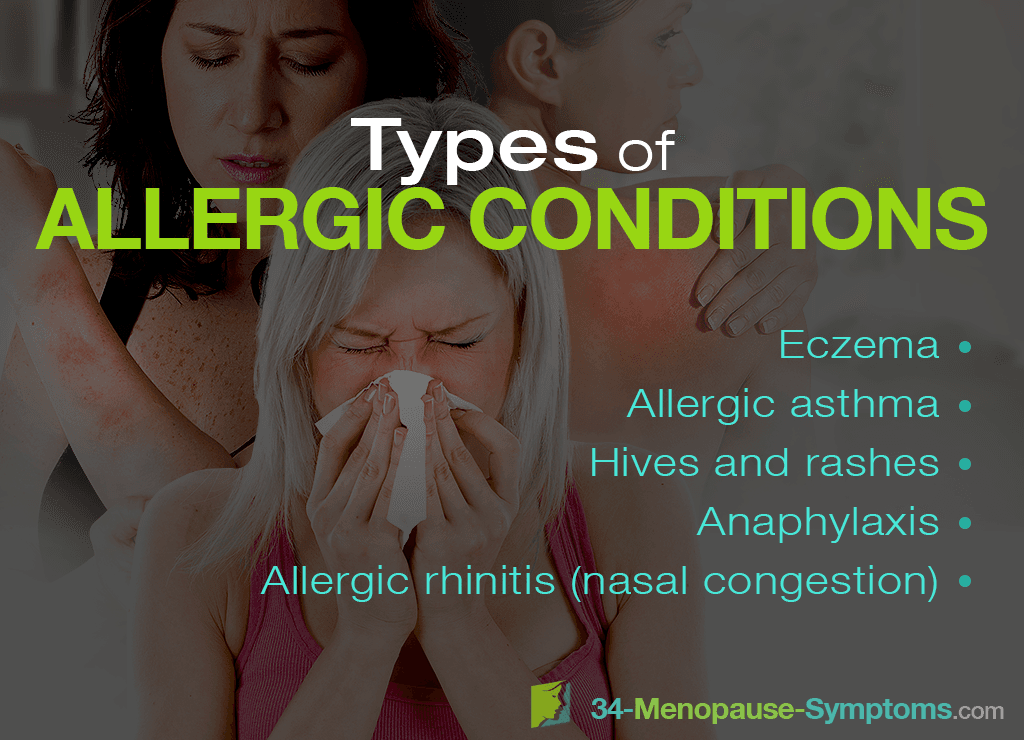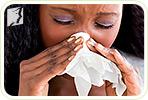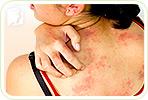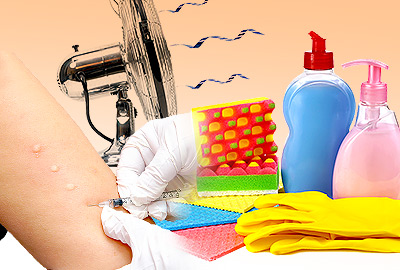One of the lesser-understood symptoms of menopause is allergies. Many people struggle with allergies on a daily basis, but since hormones and the immune system work in tandem with one another, there is a chance that the transition through menopause could make allergies worse.
Keep reading below to learn more about allergies during menopause and how you can lessen their impact on your life.
What Are Menopausal Allergies?
Menopausal allergies are abnormal immunological reactions that newly appear or worsen as a women transitions to no longer having a monthly period, or her infertile years. These reactions can culminate on the skin, in the upper respiratory system, or in the digestive system.
Why Do I Have Allergies?
Menopausal women may be more susceptible to developing new allergies or experiencing more severe reactions from their current allergies due to the natural fluctuation of hormones during this time that may impact the immune system and cause an increased sensitivity to certain allergens.
Also, since allergies can also develop with age, it is sometimes difficult to trace back a cause as to why a person develops a certain allergy.
While some people are born with allergies, others can develop allergies or allergic reactions throughout their lifetime.
Common Allergens
An allergen is a substance that the body mistakes as being harmful. The most common are:
- Animal dander
- Dust mites
- Insect bites and stings
- Food, especially shellfish and nuts
- Latex
- Mold
- Pollen
- Certain medications
Types of Allergic Conditions
Allergic reactions are the immune system's response to prevent the misidentified substance from causing damage. Some of the more common types of allergic conditions are:
- Eczema
- Allergic asthma
- Hives and rashes
- Allergic rhinitis (nasal congestion)
- Anaphylaxis
Common Symptoms
Each person is affected differently. Some experience very mild symptoms, while others have severe and even life-threatening symptoms.
- Mild symptoms: light rashes, itchy eyes, congestion, and sneezing
- Moderate symptoms: hives and itchiness, difficulty breathing, and drop in blood pressure
- Severe symptoms: swelling, abdominal pain, vomiting, cramps, diarrhea, dizziness, confusion, and anaphylaxis
How Can I Manage My Allergies?
While avoiding allergens is the most effective management technique, this is not always possible.
To identify any possible allergies you may have, take an allergy test. Once you know this, it will be easier to protect yourself against or properly control your allergies.
If you suffer from environmental allergies, take over-the-counter allergy medicine or use nasal spray when exposed to said allergen. People can also receive weekly shots over a period of time, which serves as an “allergy vaccine” and can help dissipate allergies over time.
If you have a food or medication allergy, avoiding that substance and all traces of it is imperative, especially if your allergy is severe. If you feel yourself having an allergic reaction to a food or medicine, you should seek medical attention immediately.
Stopping Allergies during Menopause
However, for natural and effective relief, consider the use of herbal supplements that can help treat menopausal allergies by helping to balance hormone levels. Without a doubt, a healthy, hormonally balanced body is the best defense against allergies. Find out more by clicking on the previous link.
Sources
- American Academy of Allergy, Asthma & Immunology. (n.d.). Allergic Reactions. Retrieved January 23, 2019, from https://www.aaaai.org/conditions-and-treatments/library/allergy-library/allergic-reactions
- Bonds, R.S. & Midoro-Horiuti, T. (2013). Estrogen effects in allergy and asthma. Current Opinion in Allergy and Clinical Immunology, 13(1), 92-99. Doi: 10.1097/ACI.0b013e32835a6dd6
- Shah, S. (2012). Hormonal Link to Autoimmune Allergies. ISRN Allergy, 2012, 910437. doi: 10.5402/2012/910437




